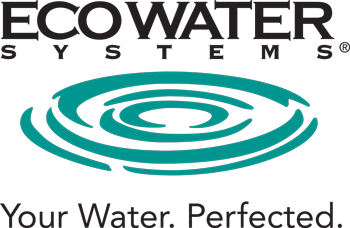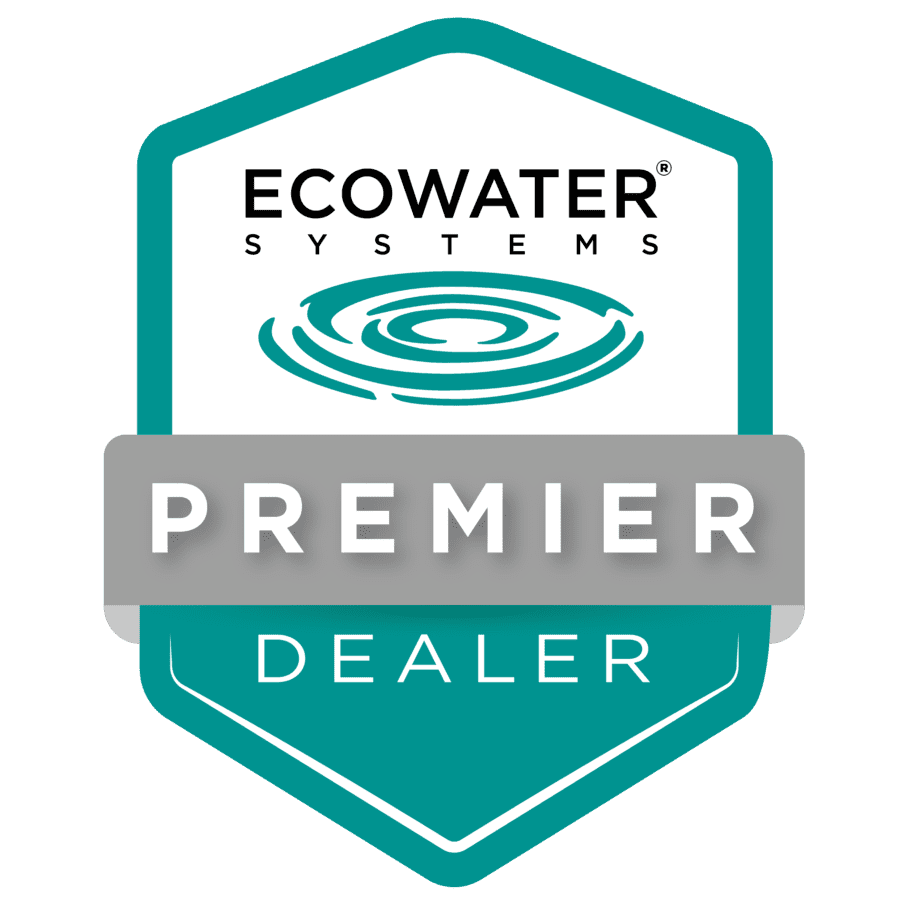As concerns about water quality grow in the Virginia & West Virginia area, more and more homeowners are seeking information about clean, safe water and what the best water filter is for their family, their home, and their specific needs.
At Clean Water of Virginia, we know water in the Virginia & West Virginia area intimately, and we know that clean, safe water is the lifeblood of families in our local community. With so many questions circling about the type of water filter that is best for each household, it’s important to understand that there is never a one-size-fits-all approach when it comes to water. In this article, we’ll discuss a couple of different types of water filters and the benefits of each. We’ll also touch on why getting your water tested by a professional is so important and how you can take the next steps to protect your family and your home.

Where Do Potentially Harmful Contaminants in My Water Come From?
The water we use every day comes from 1 of 2 places: groundwater or surface water. Groundwater is usually sourced from aquifers through a drilled well or a natural spring while surface water is collected from streams, rivers, lakes, reservoirs, and even the ocean.
For many consumers, water is carried through pipes bringing the water supply from a facility that treats the water to their home or business. A well-cared-for system of pipes can help ensure the quality of water you receive.
However, approximately 15% of the population relies on individually-owned sources of drinking water such as wells, cisterns, and springs. The quality of water from household wells is the responsibility of the homeowner. We’ll touch on this more below.

Considerations to Make About City Water
The city treats your water so it’s safe, right? The Environmental Protection Agency (EPA) implemented the Safe Water Drinking Act in 1974. This act requires municipalities to test their water supplies once or twice per year. Sometimes it’s required more often depending on potential contaminants and population size.
Local Municipalities Don’t Continuously Monitor The Pipes That Carry Your Water
However, the pipes that carry that water from the water treatment facility to your home are not required to be and aren’t typically continuously monitored. This creates a risk of contamination between the plant and your tap. Water that travels through an improperly maintained system may pose health risks. Furthermore, in cases of immediate health threats, water suppliers have a 24-hour window to inform recipients of violations of EPA standards that could pose health risks.
It’s also important to keep in mind that the EPA monitors for certain contaminants suspected to be present in drinking water, but does not yet set health-based standards for them.
The Water Quality Association mentions that many common contaminants such as bacteria and nitrates can also not be detected by our senses alone. The only way to know for sure is to have your water tested by a professional.

Considerations for Well Water
The EPA standards mentioned above do not apply to private wells. Maintaining the quality of well water is the responsibility of the homeowner, and private wells come with unique characteristics that should be carefully considered.
The Centers for Disease Control (CDC) recommends that you check your well a minimum of once a year during the springtime to ensure there are no mechanical problems. They also recommend testing at least once per year for total coliform bacteria, nitrates, total dissolved solids, and pH levels.
There are times they recommend testing your well water more often which include:
- Known or recurring problems with well water in your area
- Recent flooding or land disturbances near your well
- You live close to a waste disposal site
- When you replace or repair any part of your well system
- The taste, color, or odor of your water changes
A professional will also know about other well water issues in your area such as iron or sulphur that may require additional care when setting up a home filtration system.

It’s Best to Test Your Water First
Regardless of whether your water comes from a private well or a municipality, it’s important to have your water tested by a water treatment professional. This will help you understand the characteristics of your water and help you determine what type of water filter fits you and your home best. It’s also vital to have the test performed by a local expert to ensure that the water is collected and tested properly.
A water treatment professional will also be familiar with known contaminants in the area that may not be included in a basic water test.
Choosing A Filtration System That is Right for You
Once you’ve had your water tested and have learned about the composition of your water and potential seasonal fluctuations of water composition in your area, you can make a more informed decision on the type of filter that is right for your home.
There are two main types of filters that most people choose for their home, though not the only two options, and there are a variety of setups, options, and filter media for each type depending on your specific needs and water composition. This is another reason why working with a professional is so important.

Reverse Osmosis Filter
A reverse osmosis (RO) system is a water purification technology that uses a semi-permeable membrane to drastically reduce impurities and contaminants to create filtered water. The process of reverse osmosis involves forcing water through a membrane, which allows water molecules to pass while blocking larger molecules, ions, and particles.
Reverse osmosis systems can remove most organics, metals, and nitrates but are often used in succession with activated carbon and UV light for increased efficiency and removal of inorganic compounds. This multi-barrier approach eliminates a wide variety of contaminants that no single system can address.
A reverse osmosis water filter generally creates filtered drinking water for only one location in the house. It is usually installed under your kitchen sink.

Whole House Water Filter
A whole home water filter, also known as a point-of-entry filter, is a comprehensive water filtration system designed to treat all the water entering your home. Unlike point-of-use, or reverse osmosis filters that target specific faucets or appliances, a whole-house water filter is installed where your water enters the home. This gives the added benefit of filtering water for all uses, including drinking, bathing, washing, and cooking.
Many whole-house water filters utilize multiple filtration stages, like sediment filters, activated carbon filters, and sometimes additional technologies like UV purification or water softening, to provide thorough water treatment for your whole home. The specific setup of this type of system is dependent on the individual characteristics of your home’s water and whether you are on city or well water.
A whole house water filtration system helps you to protect your health, but it also extends to protecting your appliances, fixtures, and plumbing as well.

Working with a Local Water Treatment Professional
A local water treatment expert will be able to help you make other considerations about which setup is right for you such as what you want out of your system, the level of maintenance it would require, your water pressure, and your specific budget. Professional installation will also ensure a proper functioning system and proper integration with your home’s existing plumbing system.
At Clean Water of Virginia we have over 66 of experience helping residents in the Virginia & West Virginia area determine what type of filters and systems are the best for them.
Call us today at (540) 888-8044 or fill out our contact form to get started on the path to healthier water for your family and your home.



Recent Comments